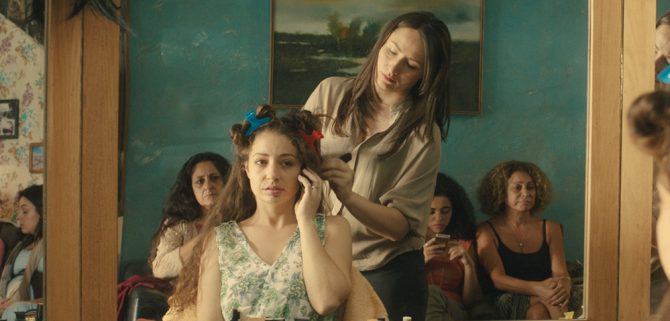Arab Film Festival highlights culture and heritage
The beautiful, emphatic sounds of the semitic language, along with the eye-catching spectacle of the black- and-white checkered patterned Arab scarves, known as the keffiyeh and the whispers of awe in the air about the Q & A with that incredible Lebanese director are each the instruments of excitement that has built up this event — the 20th-annual Arab Film Festival, which premiered at the Harmony Gold Preview House in Hollywood this past weekend.
There is no one archetypal attendee of this festival — more often than not, one would expect for this to be a reconvening of the sizable Angeleno Arab community. However, it is more than the culture that bonds these audience members, but rather, the passion and interests of a people, both Arab and non-Arab alike, that draw them to this annual festival. Men and women of all ages and backgrounds mingled in the foyer of of the Harmony Gold Preview House, debating and discussing the various topics of the film. “Why did Gamal Abdel Nasser’s dream of Pan-Arabism fail?” “Why do Westerners politicize the veil?” “Will the situation in Gaza ever improve?” were all questions asked in discussion at the event, and the answers of which only expanded after the screening of the films.
This year, in particular, offers an impressive array of films. The Arab Film Festival screened four official entries for the 2017 Academy Awards, its first animation program and 40 percent of the films were directed by Arab women — the highest percentage since the festival’s birth. With the opening night being on Friday, the festival’s debut film was Lebanon’s submission to the Oscar’s, Very Big Shot.
Though it is easy to assume, with all the turmoil in the region, that the Arab Film Festival’s selections would pertain around the theme of war, this is not quite the case. There are films, like After Spring, which is based off of the Syrian refugee crisis Degrade, which is set in a salon in the blockaded Gaza Strip and 3000 Nights, which follows the story of a Palestinian woman falsely accused of a crime and living in an Israeli prison, that allows for the audience to view those very real situations in the Middle East, however, there are films with themes as universal as coming of age, which was a huge theme in Temporary | Namour, which tells the story of a 20-something Arab-American who feels stuck in his life, who, with his job as a valet-employee, is paid to be in someone else’s intimate space, also defying class-lines. The feelings of being love and in lost left the audience with an eerie sense of vulnerability— which is a feeling all way too familiar.
The strong emotions, though felt, did not usurp the feeling of the night. And despite the deep discussions, both unique to the Arab world and general to the human emotion alike, through pain, comes laughter, and the laughter was abundant throughout the Arab Film Festival. It will be exciting to see the fate of the films submitted to the Oscar’s and to observe the growth of various directors in their upcoming works and years.

